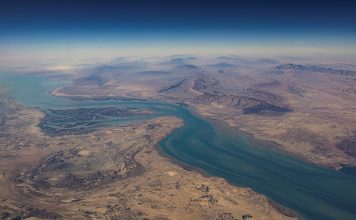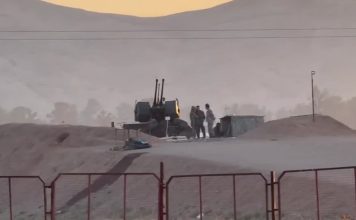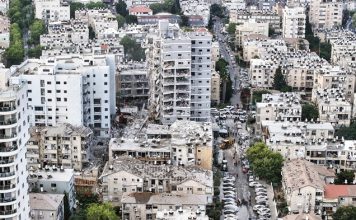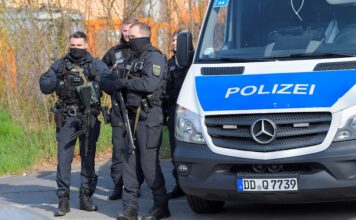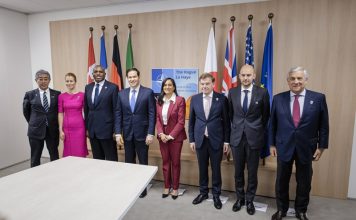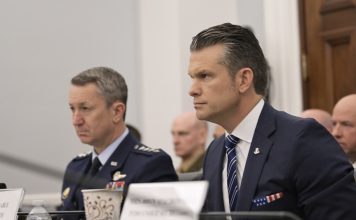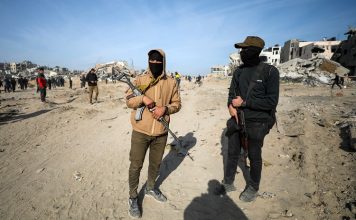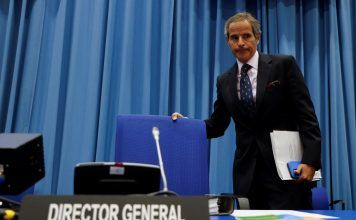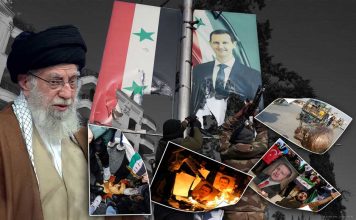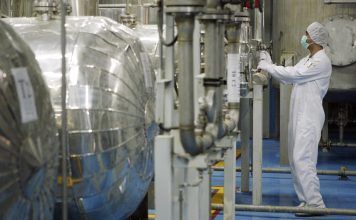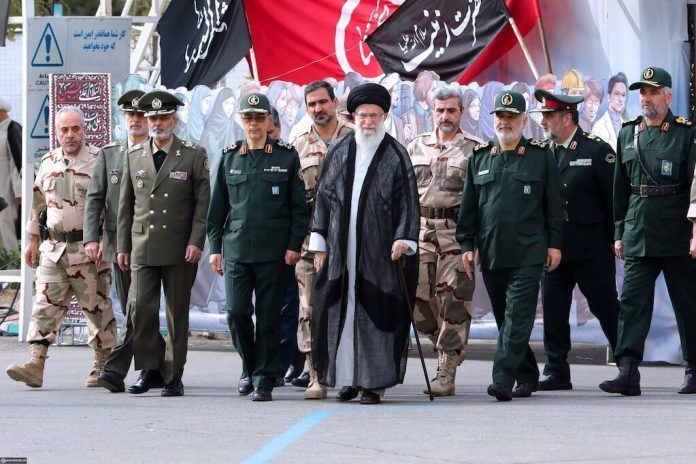
By Ahmad Rafat
Elections (or, more accurately, appointments) of 290 seats in the Majlis (Iranian Parliament) and 88 seats in the sixth Assembly of Experts (which has the power to appoint Iran’s Supreme Leader) were held on March 1. According to official data, the recent election marked the lowest voter turnout in the Islamic Republic’s 45-year history.
Political analysts, both domestically and internationally, are closely monitoring the newly appointed members of the Assembly of Experts, who will be in place for the next eight years. The latest election of the Assembly of Experts is significant because these individuals are expected to play a crucial role in appointing a successor to Iran’s Supreme Leader, Ali Khamenei, who is currently 85 years old and rumored to be in poor health.
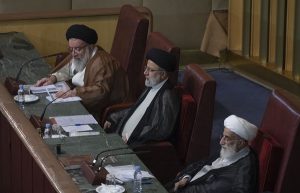
The new Assembly of Experts selection process was engineered to prevent any critics of Mr. Khamenei and his policies from participating in the elections. As a result, the composition of the new assembly is heavily skewed toward individuals who align with and follow Khamenei and his son, Mojtaba, who seems to wield significant influence within his father’s office.
Mojtaba, at 55, is one of Ali Khamenei’s six children (four sons and two daughters) with his wife, Mansoureh Khojasteh Bagherzadeh. Mojtaba is reportedly positioning himself to succeed his father.
In Iran, candidates who wish to run in any election must first receive approval from the Guardian Council, another powerful Islamic Republic institution. The Guardian Council plays a crucial role in overseeing the electoral process in Iran. It reviews candidates’ qualifications, ensuring that they adhere to the principles of the Islamic Republic.
SPECIAL REPORT- Iran’s Leader Ordered Crackdown on Unrest: “Do Whatever It Takes to End It”
In the March elections, many candidates failed the vetting process to run for a seat in the Assembly of Experts. Of the 114 candidates who entered the race, only 88 seats were available, resulting in fewer than two candidates per seat. The Guardian Council even disqualified several senior officials, including Hassan Rouhani, the former president of Iran, from running for the Assembly of Experts in the March elections.
In 1989, following the death of Ruhollah Khomeini, the founder of the Islamic Republic, Ali Khamenei was elected as the new Supreme Leader by the Assembly of Experts.
Despite reservations from certain quarters regarding Khamenei’s perceived lack of sufficient seminary education for such a high-ranking position, his election was supported by then-President Ali Akbar Hashemi Rafsanjani, who played a pivotal role in securing Khamenei’s ascension to power.
A senior Iranian official and a close relative of Rafsanjani, whom we spoke to a few years ago — and who requested to remain anonymous because they currently live in Iran — said: “Hashemi Rafsanjani endorsed Ali Khamenei’s candidacy under the belief that he could exert control over him from a distance because of his perceived incompetence in managing affairs. However, this assumption was incorrect, leading to Akbar Hashemi Rafsanjani paying a heavy price for this miscalculation.”
Khamenei holds the record for the longest tenure of any current leader in the Middle East. His leadership has been marked by periodic absences from public view, leading to speculation about his battle with heart disease and prostate cancer. However, some sources close to Khamenei have suggested that his absences may be caused by something other than physical illness. In conversations with foreign diplomats, these sources have hinted at bouts of severe depression as an explanation for Khamenei’s seclusion.
Despite reports of severe health issues such as depression, heart disease, and prostate cancer, the question of Ali Khamenei’s successor remains a highly debated topic filled with rumor and speculation. Various factions within the regime have already positioned themselves for a post-Khamenei era. However, they face a unique challenge this time, i.e., the lack of legitimacy that plagues the entire Islamic Republic system, making their efforts significantly more challenging.

Imposing a new leader on a population that now rejects the entire system — replicating what was done in 1989 — seems unfeasible after the significant protests in recent years, particularly following the ‘Woman, Life, Freedom’ movement. However, the regime might intensify its violence against and suppression of the people in the post-Khamenei era to secure its survival and install a new leader.
If Ali Khamenei’s son Mojtaba is needed as a successor, he emerges as a significant candidate because of his potential to continue the regime’s hardline government control policies and military influence. Despite not holding an official position within the current government, Mojtaba Khamenei has strategically cultivated alliances in two critical sectors over the past two decades.
Mojtaba Khamenei’s allies are part of the upper echelons of the Islamic Revolutionary Guard Corps (IRGC), particularly the intelligence apparatus within the IRGC. They also include individuals from the Iranian economic elite who, reportedly supported by Ali Khamenei and his son, are allegedly involved in embezzling billions of dollars with impunity. After his father’s passing, Mojtaba Khamenei can rely on money and weaponry, crucial elements in sustaining non-democratic and authoritarian regimes.
These factions also cite religious justifications for Mojtaba succeeding his father. In a meeting in December of last year with the family of Lieutenant-General Ghasem Soleimani — the former commander of the IRGC’s Qods Force (IRGC-QF) who was killed in a U.S. drone strike at Baghdad International Airport on January 3, 2020 — Khamenei claimed that God spoke through him.
Referencing a meeting with 20 IRGC commanders, Khamenei said: “The Almighty God spoke like this. It was my tongue, but it was God’s words.” By asserting that his words were essentially divine, Khamenei is attempting to elevate his status to that of the Prophet Mohammad and the Shia imams.
The supporters of Mojtaba Khamenei are invoking religious beliefs to justify his succession to the leadership position currently held by his father as Iran’s Supreme Leader. They draw parallels between Shia second Imam Hassan, the eldest son of the first Shia Imam Ali ibn Abi Talib, who succeeded his father after his death.
Over the past two decades, Mojtaba Khamenei has successfully marginalized and defeated all potential contenders for his father’s succession, notably outmaneuvering figures like Sadegh Amoli Larijani, the former head of the Judiciary, and Hassan Khomeini, the grandson of Ruhollah Khomeini, the founder of the Islamic Republic.
As previously noted, one side of the equation encompasses security, military, and economic forces. The other side is represented by individuals who have shown their discontentment with the current system through various means in recent years, shifting the focus away from internal conflicts.
Today, the Iranian public protects the ‘Women, Life, Freedom’ movement, which is akin to a fire beneath the ashes that lies dormant but is unextinguished, as evident in women’s daily resistance against the Islamic Republic’s rule.
It is crucial to recognize the potential for people to seize the moment of Khamenei’s passing to mobilize once more and challenge the regime in selecting a new religious leader. In such a scenario, the appointment of a third Velayat-e Faqih (the Guardianship of the Islamic Jurist) becomes complex, potentially leading people to disrupt this process and to signal the demise of the Islamic Republic.
OPINION: The Solution to the ‘Iran Problem’ is Regime Change
Prince Reza Pahlavi : ‘The Alternative to the Islamic Republic is the Iranian nation’

